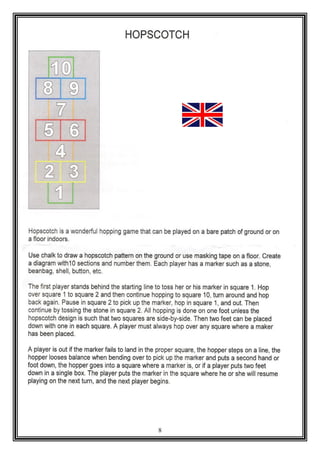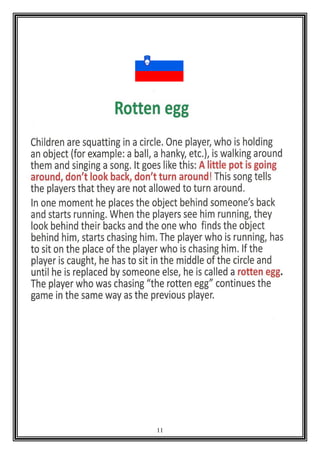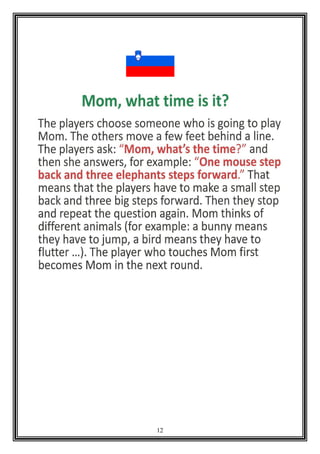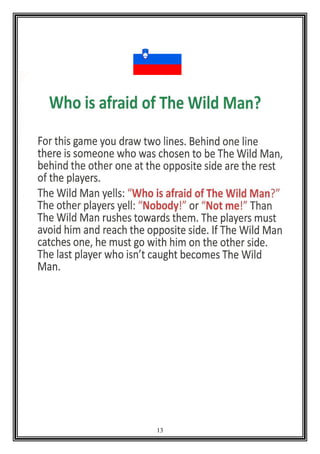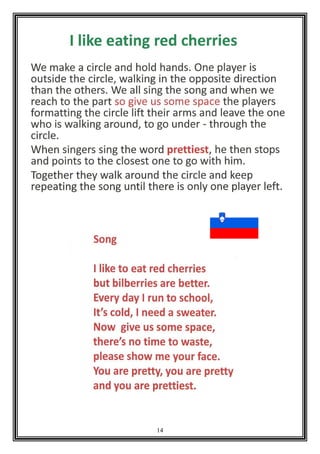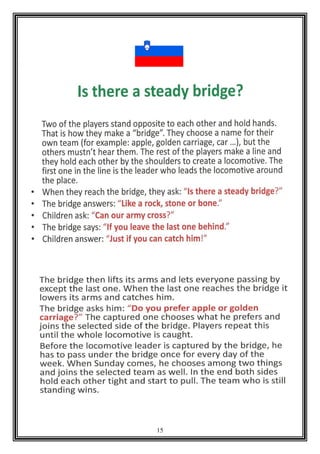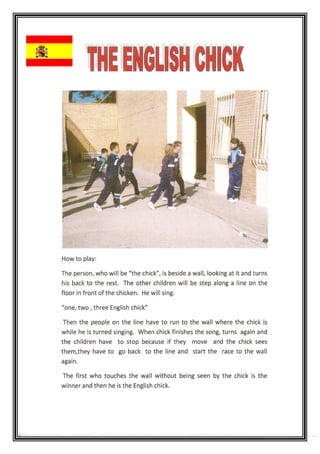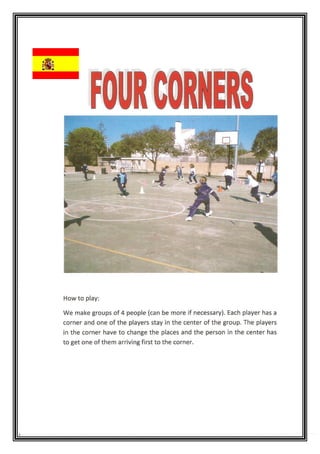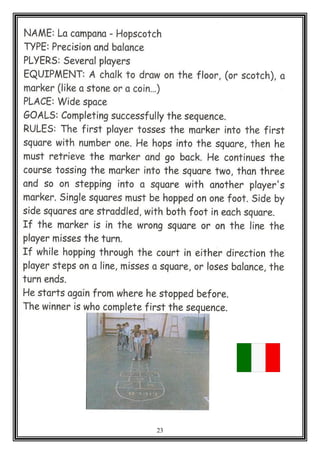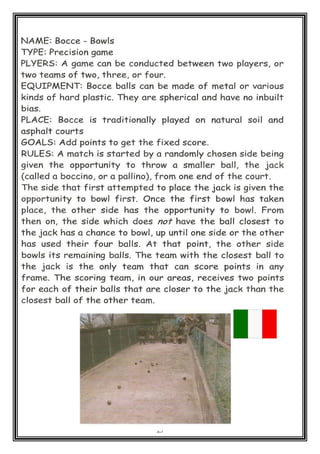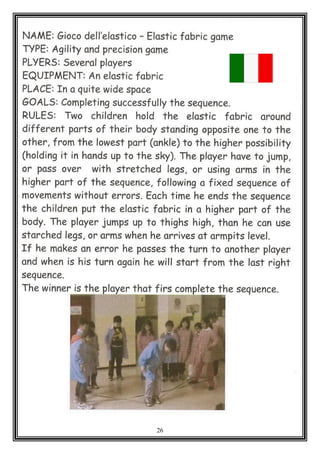This document contains descriptions of 29 traditional children's games from various European countries including Greece, Spain, the United Kingdom, Italy, Slovenia, and Sweden. The games involve activities such as choosing animal roles, guessing professions, running between bases to steal a handkerchief, tagging each other to accumulate points, dodging thrown balls, and more. The descriptions provide the basic rules and objectives of each traditional game.







